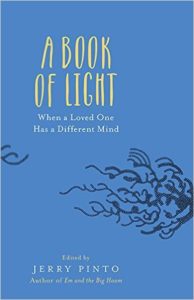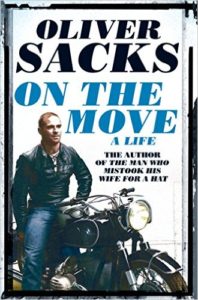Sarah Moon’s “Sparrow”
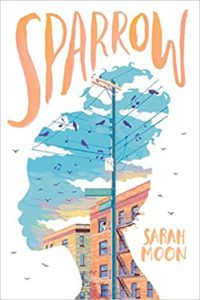 And then there it is, our new, terrible silent routine. And to top it off, I have no birds and the world feels like a different kind of dark than it felt before. Mom isn’t perfect, but I miss her. I miss her picky neatness, I miss her bothering me about taking my nose out of a book and making a friend for once, I miss her getting on my case about my hair. I miss telling her about what I’m reading, what I’m thinking, asking her about work, listening to her carry on about Aunt Joan and whatever drama she’s gotten into. I miss her. There is a sadness I can’t shake, that’s not just from breakfast. There are no birds by the feeder. There aren’t pigeons cluttering the sidewalk as I go to school. I know, now, that last night’s dream was the last flight I’ll take.
And then there it is, our new, terrible silent routine. And to top it off, I have no birds and the world feels like a different kind of dark than it felt before. Mom isn’t perfect, but I miss her. I miss her picky neatness, I miss her bothering me about taking my nose out of a book and making a friend for once, I miss her getting on my case about my hair. I miss telling her about what I’m reading, what I’m thinking, asking her about work, listening to her carry on about Aunt Joan and whatever drama she’s gotten into. I miss her. There is a sadness I can’t shake, that’s not just from breakfast. There are no birds by the feeder. There aren’t pigeons cluttering the sidewalk as I go to school. I know, now, that last night’s dream was the last flight I’ll take.
Sarah Moon‘s debut novel for young adults Sparrow is about a teenager of the same name who has a nervous breakdown. Sparrow is fourteen. She was whisked away to hospital from school after being discovered on the roof. Sparrow maintains she was bird watching as she has always been fascinated them fly. Sparrow lives with her mother, who is a single parent. Sparrow is named after the bird by her mother because she was “so small and brown, almost breakable, but so strong. Tiny but mighty…”. Few weeks later Sparrow is released in her mother’s care with the stipulation she takes her prescribed medication and visits a therapist regularly. So it is fixed that Sparrow attends regular sessions with Dr. Katz which are protected by doctor-patient confidentiality and even Sparrow’s mother cannot sit in upon the hour-long meetings. At first Sparrow refuses to speak to Dr. Katz but after weeks of therapy Sparrow begins to come around. It is probably listening to Dr. Katz playlist which begins to break the barriers for Sparrow. So much so she orders the very same songs/bands she heard during therapy for her listening pleasure at home. All through months of treatment and close questioning by her mother Sparrow is adamant that she was not trying to kill herself but just wanted to be with the birds. Probable reason for her being found alone on the roof ledge was she was devastated upon hearing of the tragic death of her favourite librarian, Mrs Wexler, in a traffic accident. Mrs. Wexler had been warm and welcoming to the shy and reserved Sparrow, encouraging the little girl to sit in the library any time she felt like it, read, participate in the book club etc. Mrs. Wexler offered the fragile little Sparrow a refuge from a world which constantly overwhelmed her.
Sparrow begins from the moment Sparrow is released from the hospital. She is portrayed as a very lonely girl who slowly opens out under Dr Katz’s patient guidance. By the end of the novel Sparrow finds the smallest steps like conversing with other girls of her age still a daunting task but at least she is doing it! It suddenly dawns upon her during the finale when she is running away from her responsibility that the feeling of being ready will never come. She has to muster courage. “I am not going to be ready. I’m going to have to do this without being ready.” The ultimate epiphany is that the very same music that helped her in therapy is where she finally gets what she has been craving for — to fly away, for her limbs to go light. In fact Sarah Moon created her playlist for Sparrow on Spotify. In it are listed all the pieces of music referenced in the story.
Depression comes in many shades. With the recent suicides of two prominent people Kate Spade and Anthony Bourdain within a week of each other has suddenly put the spotlight on mental health. These issues were always there and always discussed but the magnitude of this problem is unthinkable. To quote Dr Anirudh Kala, Clinical Director, Mind Plus:
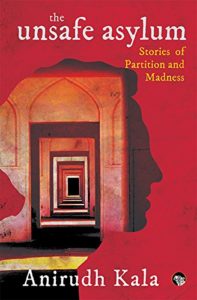 Partition and Madness)
Partition and Madness)In Longreads essay “Surviving Depression” by Danielle Tcholakian written after the deaths of the Bourdain and Spade one of the sanest pieces of advice shared for those who battle depression every day as well as those around them is:
…the biggest lesson I’ve learned in wrestling with this illness for nearly 20 years. You can’t get out of it alone. It is also, confusingly, true that no one can save you — you’re always the one who has to do the work, who has to slog through the muddy darkness — but the eminently human kindnesses of friends and family along the way are what make the slog even remotely possible. And the truth is, you don’t have to do much of anything most of the time. Just be there. . . . Depression is a beast that swallows you whole and forces you to live inside it until you fight your way out — always with help, always with the others safely outside the beast who can pull you back.
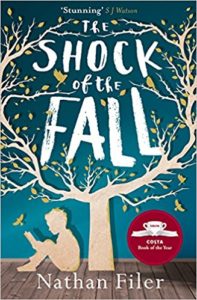 Writing about a teenager whose mental health is being questioned by everyone around her even though the teenager herself is under the impression that her reality makes perfect sense is probably not easy. Yet Sarah Moon’s undeniable wizardry is evident in her sensitive storytelling. Sparrow can be challenging even for an experienced author
Writing about a teenager whose mental health is being questioned by everyone around her even though the teenager herself is under the impression that her reality makes perfect sense is probably not easy. Yet Sarah Moon’s undeniable wizardry is evident in her sensitive storytelling. Sparrow can be challenging even for an experienced author 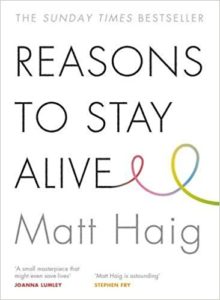 to create as it is a potential minefield if not handled well. It can fall apart easily. After Nathan Filer’s The Shock of Fall this is another great young adult novel to add to a school reading list. Perhaps to be read in conjunction with Matt Haig’s Reasons to Stay Alive which is not a young adult novel, nevertheless an excellent memoir about coming-to-terms with depression and easily accessible to readers of all ages.
to create as it is a potential minefield if not handled well. It can fall apart easily. After Nathan Filer’s The Shock of Fall this is another great young adult novel to add to a school reading list. Perhaps to be read in conjunction with Matt Haig’s Reasons to Stay Alive which is not a young adult novel, nevertheless an excellent memoir about coming-to-terms with depression and easily accessible to readers of all ages.
Do read Sparrow. It is not always easy to read for it can be a challenge to read but it is time well spent.
Sarah Moon Sparrow Arthur A. Levine Books, An imprint of Scholastic Inc., New York, 2017. Hb. pp. 270
21 June 2018

